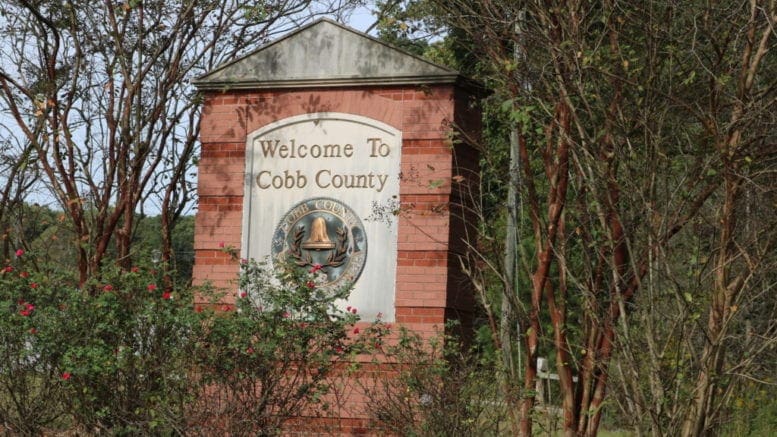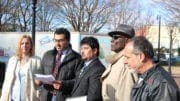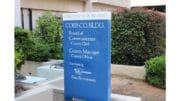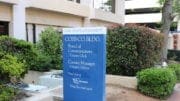By Arielle Robinson
A pair of local and longtime Cobb community activists say they would like to see the next round of federal funds from the 2021 American Rescue Plan Act go toward a county plan to promote equity.
Congress passed ARPA in March. The intention of the act is to assist state, local and tribal governments in handling the economic and social costs of the COVID-19 pandemic.
On Friday, Oct. 29, Cobb County initiated its ARPA Community Needs Survey in an email newsletter, which was reprinted by the Courier a few days later.
The survey’s purpose, available to take in English or Spanish, is to collect feedback on what Cobb residents would like to see the county allocate its approximately $147 million amount of federal aid toward.
The $147 million is split into two payment periods.
In May, Cobb received $73,824,239 from ARPA and will receive the same amount of money again in 2022.
The survey takes around 5-10 minutes to complete and addresses four categories — supporting water, sewer, and stormwater infrastructure, lessening negative economic impact, supporting public health response, and providing premium pay for essential workers.
“The survey will help the county to reflect the community’s priorities in its plan for investing the funds between these eligible uses,” the county announcement reads. “ … every survey response will help to shape an investment strategy that addresses the community’s highest needs. Hard copies of the surveys are available at all Cobb Senior Services’ multipurpose centers.”
Sally Riddle and Cobb Southern Christian Leadership President Dr. Ben Williams, community activists who have worked on a slew of social justice issues from police brutality to jail and immigration reform and beyond, said they are concerned about equity in the county.
They would like to see Cobb use its ARPA funds to assist marginalized communities in the county.
They feel encouraged by a federal government that has laid out intentions to ensure social justice for the poor, the LGBTQ community, people of color and other historically oppressed groups.
In particular, they point to the first executive order President Joe Biden signed in January, titled “Advancing Racial Equity and Support for Underserved Communities Through the Federal Government.”
Executive Order 13985 instructs the federal government to examine its agencies and programs for racial, gender, wealth, and other inequities. After the examination process, agencies are to determine solutions that best address these inequities.
Section 6 of the EO suggests that the federal government allocate resources “to address the historic failure to invest sufficiently, justly, and equally in underserved communities, as well as individuals from those communities.”
Agencies have a year to gather data on various inequities and develop a plan that tries to make up for the inequities.
Riddle and Williams’ views are also inspired by the county’s written commitment to address racism.
Last year, in the midst of international protests against the police killing of George Floyd, Cobb’s Board of Commissioners unanimously passed an anti-racism resolution in which the Board said it would actively commit to “providing an environment that supports civil rights for all.”
In light of this local and federal government legislation, Riddle said now would be a “perfect opportunity to really help make up for some of those inequities.”
Riddle talked about the shortage of childcare workers and how ARPA funds can help in that area.
“Is there a way that our county government could use some of these funds to either provide salary subsidies for childcare workers or subsidies based on income for families so that they can afford childcare so they can go back to work?” Riddle said.
Riddle also mentioned allocating more funds toward mental health.
She said that the Cobb County Community Services Board, which provides mental health resources, is stressed with regard to staffing levels and their ability to respond.
Residents should be provided with easier ways to access these mental health services, Riddle said.
Even from the perspective of what on the surface may seem to not be an issue of social justice — infrastructure improvements — could be used to address disparities, Riddle said.
“We could target those infrastructure improvements into needier areas of our county,” she said. “ … there’s just a myriad of ways that if we really think creatively and out of the box that we could use some of these funds.”
Williams is part of a study group of people across seven southeastern states that are looking into Biden’s EO, ARPA funds, and how states intend to spend the money.
Williams said that equity, rather than equality, is the “new call to order.”
Williams explained the difference between equity and equality with an analogy:
“Sameness does not change the status quo. If you and I are trying to get downtown on the bus — and that is the goal — and the bus fare cost $1, you’ve got 75 cents, and I’ve got 50 cents, the equitable distribution of the resources would be to give you a quarter, you’ve now got $1 and I get 50 cents, because the goal is for us to both get downtown. If we dealt with that equally, you would get a quarter and be saying, ‘I’ll see you later, Ben.’ Because I would get a quarter which would make me have 75 cents, and I still would be a quarter short. That is equality.”
Williams added to the issues he thinks the federal funds could be allocated toward. Workers could be provided with living wages, among other improved living standards, he said.
“We know that there are some food deserts [in our county],” Williams said. “We look at our county, where we recognize that there is not easy access to a bank. You look at our county, where our transportation needs are more evident [in certain parts of the county] than other parts of the county. You look at our county where some people have a higher dependency on public transportation than in some other places. Equality will not address that — equity will.”
Williams said the county should be responsible with the money and spend it in a manner so that people of color can have more resources at their disposal, as they are often hardest hit by socioeconomic issues.
“We have a Housing Authority … that needs to be infused with resources so that it can do the job that housing authorities were set up for,” Williams said.
He also said the county should invest in the community to produce more mixed-income housing. He said that more houses are being constructed but they remain unaffordable for working-class and low-income people to live in.
Williams acknowledged that the county has and continues to work on helping marginalized communities with some — albeit little, in his opinion — progress.
For example, back in June, the BOC voted to allocate more than $1.5 million of ARPA funds for food assistance. The county recommended the money go to local nonprofits to distribute the food.
Like Riddle, Williams believes the ARPA funds can show up for the disadvantaged in a dramatic way.
Cobb County recently hired a consultant group, Deloitte Consulting LLP, to determine optimal ways of spending the federal aid.
According to the agenda item about hiring a consultant, “Negotiations were carried out with the firm to reach an agreeable scope of work and fee. Contract terms include nine deliverables to be completed within 12 months for a fee of $2,788,000 and this fee will be paid from ARPA funds the County has already received.”
Something Riddle would like to see be made clearer is the consultant group’s plan for community input beyond the survey.
She worries that the most disadvantaged people in Cobb — people who stand to benefit most if ARPA funds were directed toward them — may not know about or have access to the survey. That may result in their crucial input being excluded.
“How is this consultant company going to get the input that would be adequate, representative, of our various communities within the county?” Riddle asked. “We have Asian communities, we have Latin American communities — are they going to be doing something in Spanish? … How are they going to be analyzing that input? And what kind of timeline are they looking at to get feedback to the Board of Commissioners? And is there going to be community input capabilities when there’s a draft plan of what to do with the money?”
Riddle also expressed concern over the Monday, Nov. 22, deadline to take the survey. She says the timeline is too short, especially in light of the holidays.
So far, about 200 people have responded to the survey, Cobb County Communications Director Ross Cavitt said.
About the timeline, Cavitt said that the county has plans to extend the survey deadline through early December. County officials will have another meeting in the coming week to determine a specific date.
Regarding accessibility to the survey, Cavitt responded “It is available online and we are working through our senior centers to distribute hard copies of the survey through their centers and they will be out at various county events in the coming weeks distributing more info. We are also likely going to mail copies to people who indicate they have no online access.”
Finally, Cavitt said that the survey is only the first of multiple opportunities residents will get to voice their opinions on how the county should spend ARPA funds.
“[Deloitte is] currently holding sessions with commissioners, next they will be meeting with county nonprofits and small businesses,” Cavitt said. “After the online survey is complete, we will schedule a series of public events (some in conjunction with commissioners). We haven’t announced any of that yet since we’re only in the second week of planning.”

Arielle Robinson is a student at Kennesaw State University. She also freelances for the Atlanta-Journal Constitution and is the former president of KSU’s chapter of the Society of Professional Journalists as well as a former CNN intern. She enjoys music, reading, and live shows.





